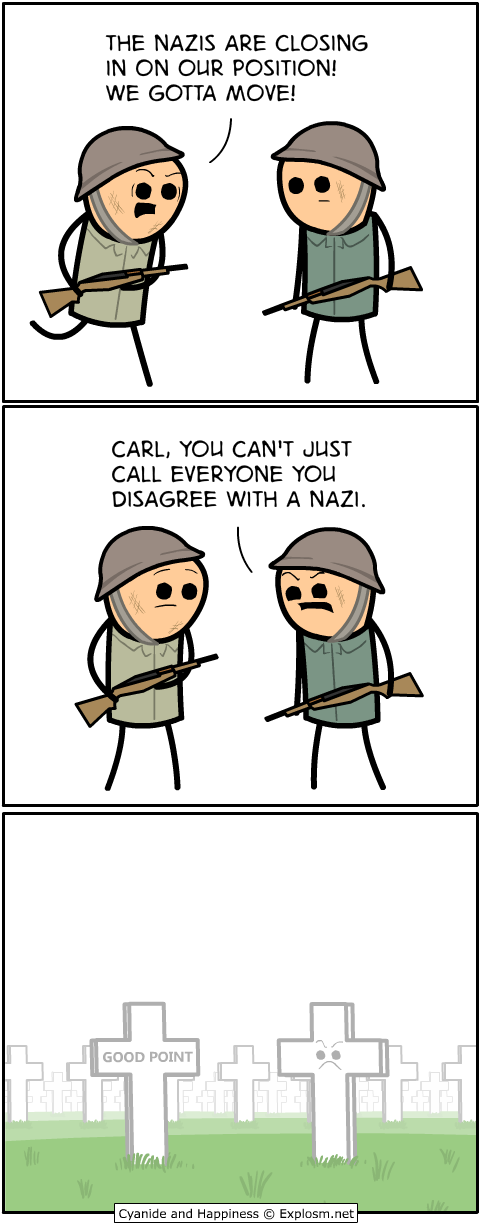Forty Two wrote: ↑Wed Apr 17, 2019 3:16 pm
Joe wrote: ↑Wed Apr 17, 2019 2:18 am
Okay, I'll take that as an answer to my original question.
You have some unusual ideas about the separation of powers, but you're not alone in those views. I read something a while back that attributed the growing tolerance for unchecked Executive power to be related to the fading memory of the power FDR amassed in his long Presidency, with the crises of Depression and the second World War, that so concerned his contemporaries as to make Presidential term limits attractive.
Personally, I think 9/11 played a part too.
My ideas are not unusual. I have sourced them. You haven't sourced anything that suggests otherwise.
I'm also not talking about "unchecked" power. Separation of powers is separation of powers. The President can't make laws or "check" congress's power to make laws in Article 1 section 8. The way the President checks congress' power to legislate is in the President's manner of enforcing those laws. The President cannot judge cases, that's the judiciary branch. Likewise, the court can't pardon or declare people unpardonable and neither can congress. Those powers are allocated to the various branches of government. None of the three branches is above another.
Given it took a week to get you to answer my question, I ignored the separation of powers stuff, since it was off topic, I'd heard it before, and I was more interested in how far your defense of speech and due process rights went. Thanks for indulging me on the hypotheticals.
As for separation of powers, I think you may need to study on it some more. The President's primary check on the legislative power of Congress is the
veto. It amuses me greatly that you don't know this, but it demonstrates how unusual your ideas are, and I hope my sourcing is adequate for your understanding.
Let me try and further your understanding by sharing a source I think is a worthwhile
foundation for considering the relationship between Congress and the Executive.
The actual art of governing under our Constitution does not, and cannot, conform to judicial definitions of the power of any of its branches based on isolated clauses, or even single Articles torn from context. While the Constitution diffuses power the better to secure liberty, it also contemplates that practice will integrate the dispersed powers into a workable government. It enjoins upon its branches separateness but interdependence, autonomy but reciprocity. Presidential powers are not fixed but fluctuate depending upon their disjunction or conjunction with those of Congress. We may well begin by a somewhat over-simplified grouping of practical situations in which a President may doubt, or others may challenge, his powers, and by distinguishing roughly the legal consequences of this factor of relativity.
1. When the President acts pursuant to an express or implied authorization of Congress, his authority is at its maximum, for it includes all that he possesses in his own right plus all that Congress can delegate. In these circumstances, and in these only, may he be said (for what it may be worth) to personify the federal sovereignty. If his act is held unconstitutional under these circumstances, it usually means that the Federal Government, as an undivided whole, lacks power. A seizure executed by the President pursuant to an Act of Congress would be supported by the strongest of presumptions and the widest latitude of judicial interpretation, and the burden of persuasion would rest heavily upon any who might attack it.
2. When the President acts in absence of either a congressional grant or denial of authority, he can only rely upon his own independent powers, but there is a zone of twilight in which he and Congress may have concurrent authority, or in which its distribution is uncertain. Therefore, congressional inertia, indifference or quiescence may sometimes, at least, as a practical matter, enable, if not invite, measures on independent presidential responsibility. In this area, any actual test of power is likely to depend on the imperatives of events and contemporary imponderables, rather than on abstract theories of law.
3. When the President takes measures incompatible with the expressed or implied will of Congress, his power is at its lowest ebb, for then he can rely only upon his own constitutional powers minus any constitutional powers of Congress over the matter. Courts can sustain exclusive presidential control in such a case only by disabling the Congress from acting upon the subject. Presidential claim to a power at once so conclusive and preclusive must be scrutinized with caution, for what is at stake is the equilibrium established by our constitutional system.
You don't have to agree with it Forty Two, but as you said, "the ability to entertain a notion without accepting it is the beginning of wisdom," and I think this is a good one to entertain at length. I've found it useful, and hope you will too.
Also, this gets us firmly back on the topic of the thread, because the guy who wrote this didn't punch Nazis,
he hanged them. 

"Two things are infinite: the universe and human stupidity; and I'm not sure about the universe." - Albert Einstein
"Wisdom requires a flexible mind." - Dan Carlin
"If you vote for idiots, idiots will run the country." - Dr. Kori Schake

